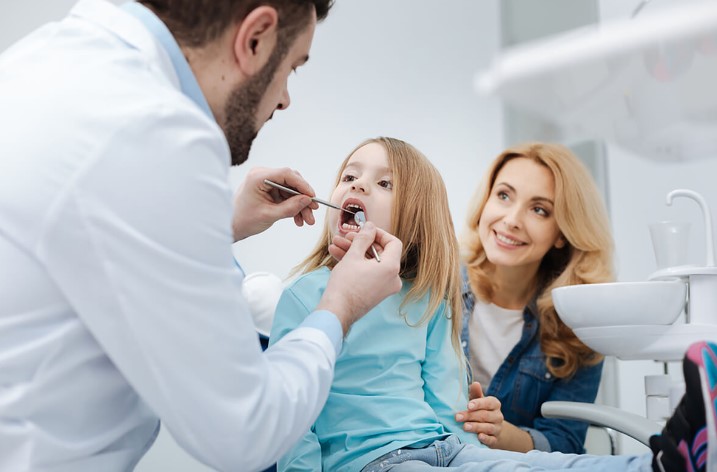The Importance of Pediatric Dental Care for Lifelong Oral Health
Key Takeaways:
- Early dental habits set the stage for healthy adult teeth.
- Prevention is critical in addressing common pediatric dental issues.
- Regular dental visits are beneficial for more than just dental health.
- Nutrition significantly affects the development of children’s teeth.
- Understanding pediatric dental technology and its benefits.
- Educating parents and children about oral health promotes lifelong wellness.
Table of Contents:
- Introduction to Pediatric Dentistry
- Understanding Dental Development in Children
- Common Pediatric Dental Problems and Their Prevention
- The Benefits of Regular Pediatric Dental Visits
- Nutrition and its Impact on Children’s Dental Health
- Managing Dental Anxiety in Children
- The Latest in Pediatric Dental Technology and Treatments
- Pediatric Oral Health Education for Parents and Caregivers
- Establishing a Dental Home: When and Why
- The Future of Pediatric Dentistry
Introduction to Pediatric Dentistry
The journey to lifelong oral health begins in childhood. Early establishment of robust dental care practices can lead to healthier teeth throughout an individual’s life. During these formative years, it’s essential to create an inclusive environment for children who may require special attention, including neurodiverse patients Los Angeles CA. Such personalized care is crucial in successfully managing a child’s dental health and contributes to their overall positive experience in the dentist’s chair.
Understanding Dental Development in Children
Children’s mouths go through several growth stages. Understanding this process is essential for parents and caregivers to ensure they take appropriate care of their child’s teeth at each stage. The first set of teeth, called ‘milk teeth,’ is essential for developing proper chewing habits and speech patterns and holding the suitable space for future permanent teeth. Understanding the significance of these baby teeth enables parents and other adults to encourage their children’s dental growth better and lay a solid foundation for good oral hygiene throughout life.
Common Pediatric Dental Problems and Their Prevention
Despite being largely preventable, tooth decay remains one of the most common diseases affecting children worldwide. Regular brushing, fluoride toothpaste, and flossing are fundamental in preventing decay. Parents should also be mindful of scheduling regular dental check-ups for their children, as these visits are vital in preventing and treating early signs of tooth decay.
The Benefits of Regular Pediatric Dental Visits
Children who visit the dentist regularly are likelier to maintain healthy teeth into adulthood. During these visits, dentists can provide professional cleanings, apply protective treatments such as fluoride, and offer early interventions for developing issues. Beyond immediate oral health benefits, these visits can also help children establish a sense of normalcy around dental care practices, reducing the likelihood of dental anxiety.
Nutrition and its Impact on Children’s Dental Health
A child’s diet dramatically influences their tooth and gum development. Consistent consumption of foods high in sugar and acids can lead to tooth enamel decay and erosion. Educating children on the impact of their dietary choices on their dental health is vital for promoting long-term oral hygiene.
Managing Dental Anxiety in Children
Anxiety related to dentistry is a prevalent problem that can significantly hinder a child’s willingness to go to appointments. Small actions like reassuring children that dental visits are not frightening and providing a kid-friendly explanation of dental procedures can reduce fears. Moreover, creating a welcoming environment at the dental office, with staff trained to help children feel comfortable and secure, is essential in nurturing a positive outlook toward dental health.
The Latest in Pediatric Dental Technology and Treatments
Thanks to advances in dental technology, pediatric dentists now have various tools to make dental care more effective and less intimidating for children. Modern advancements in healthcare technology, such as digital X-rays and laser dentistry, can increase the precision of diagnosis and treatments while shortening wait times and enhancing patient comfort.
Pediatric Oral Health Education for Parents and Caregivers
Parents and caregivers are the first educators of children when it comes to oral health. Access to sound pediatric oral health education is essential in guiding these individuals on properly caring for children’s teeth and gums at home. This education extends beyond tooth brushing and flossing techniques to include advice on nutrition, habits to avoid, such as thumb sucking, and understanding the typical developmental milestones in a child’s dental growth.
Establishing a Dental Home: When and Why
A ‘dental home’ is where a child receives continuous and comprehensive oral health care at a single dental practice. This continuity allows for personalized care, better tracking of dental development, and more effective long-term treatment planning.
The Future of Pediatric Dentistry
As we look towards the future, pediatric dentistry shows promise for even more refined approaches to children’s oral care. Ongoing research into materials, techniques, and preventive measures will likely lead to further innovations that make dental care even more efficient and comfortable for young patients. Staying informed about these advancements can ensure our children receive the best care for their teeth and gums.


